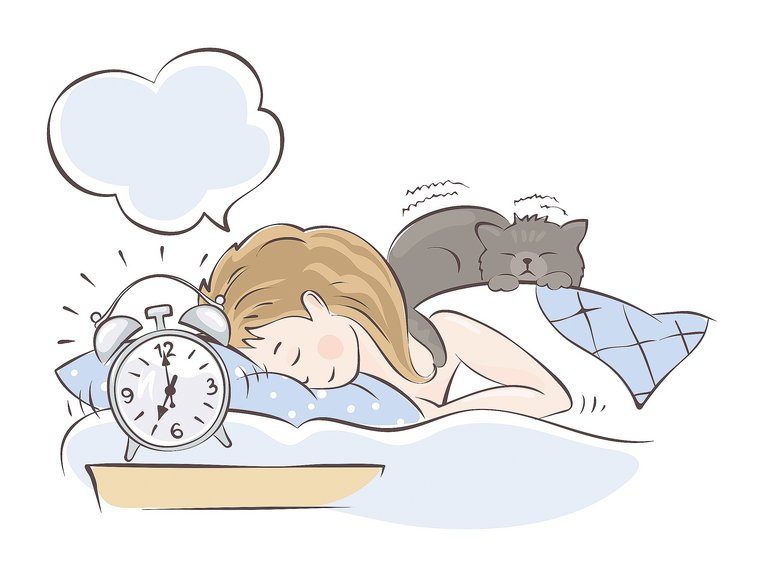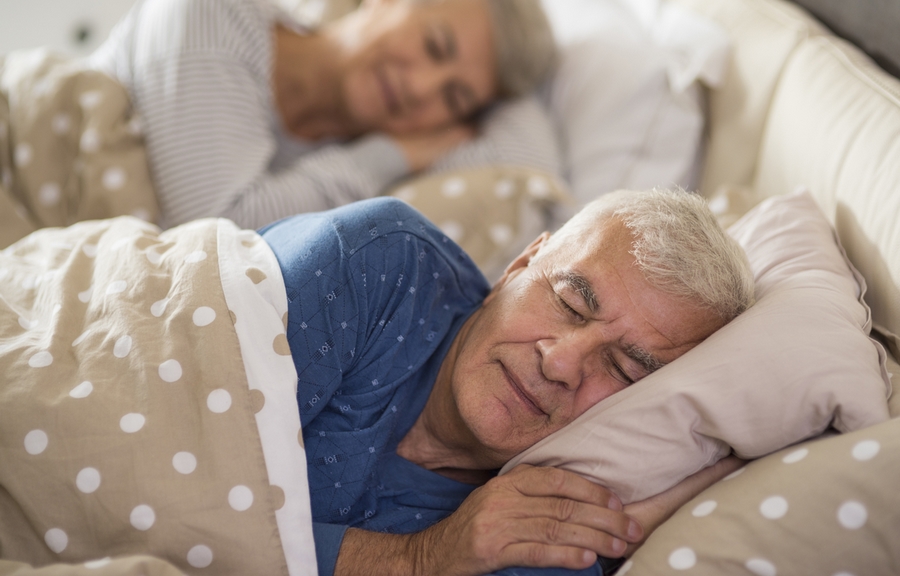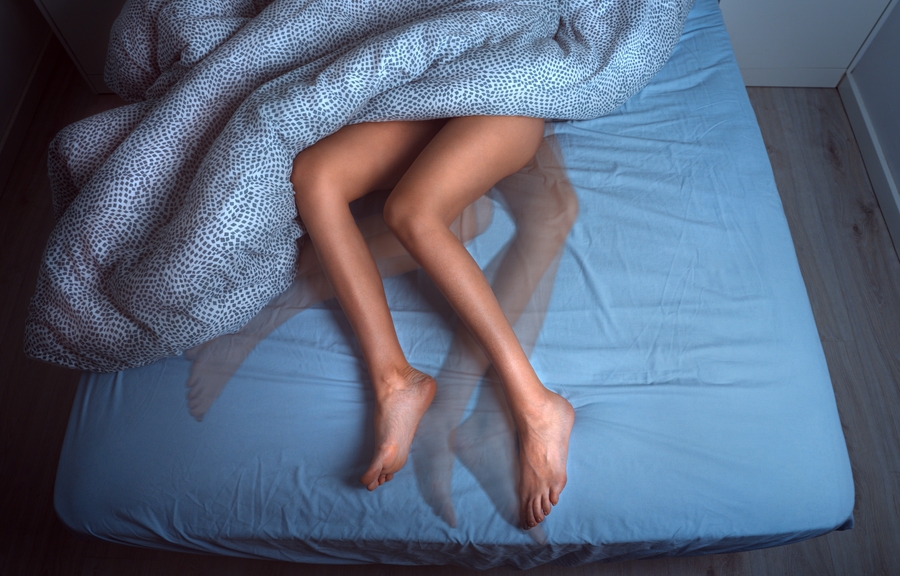When we use the term "sleep hygiene” we are talking about habits and practices that enable you to have a good night’s sleep. These practices were first developed and researched in the 1970s to help patients with mild to moderate insomnia. Here are 15 useful behavioral techniques for a good sleep hygiene – compiled by clinical psychologist Madalina Modoranu (NephroCare Vaslui, Romania).
1. Establish a fixed sleep schedule. Our bodies like routine.
Especially when it comes to sleep. Try waking up at the same time every day. It will cause you to become drowsy just when it’s time to go to bed. If you need to wake up very early to go to dialysis, try to wake up around the same time on the days before your appointment. Sleep cannot be “recovered”. If you sleep until later on the days before your early wake up call, you will not be able to compensate for the loss of sleep – and to make matters worse it even causes you to have a hard time getting up on the day after. Keep in mind that waking up at different times affects the quality of sleep and increases the time it takes to fall asleep.
2. Avoid caffeine, alcohol and nicotine intake.
As you will proba-bly know, caffeine is not only present in coffee, but also in certain teas, energy drinks and even in chocolate. It’s a stimu-lant, just like nicotine. They both cause a state of activation that makes it difficult to initiate sleep, and it also affects its quality. If you have trouble sleeping well, avoid smok-ing before bedtime and eliminate the combi-nation of tobacco and caffeine from your habits. Another way to ensure a good rest is to avoid eating foods that have a stimulating effect on the central nervous system. If you find it difficult to avoid them all together, try to limit the amounts and consume them during the first half of the day. But in gen-eral, you should definitely stick to your fluid intake routine.
3. Avoid going to bed too full or too hungry.
Avoid rich meals at least one hour and a half before bedtime. Numer-ous studies show that digestion during the night alters the quality of sleep and lets you wake up more frequently during the night. The opposite is true as well – if you go to bed hungry, your quality of sleep will be decreased. So, don’t skip dinner. The best way to ensure a good nights sleep is to opt for a light snack in the evening.
4. Try to catch a healthy amount of sun every day.
Daylight is essential for setting the sleep-wake rhythm. Spend time outdoors and try to expose yourself to sunlight for at least 30 minutes each day. It is recommended that spend this time during the first part of the day, so that you benefit from the gentle rays of the morning sun. Don’t overdo it though. Do not expose your access site to sunlight, avoid sunburns and be sure to use or wear sun protection.
5. Avoid sports activities at least two hours before bedtime.
At least 30 minutes of physical activity a day are good for the body and contribute to a better sleep. But intense physical exercise close to bedtime will increase body temper-ature and metabolism rate, making it difficult to start sleeping. Try to plan your sports activities during the first part of the day – or at least two hours before bedtime.
6. Reduce sources of concern.
We all know how difficult it is to fall asleep when we are worried. But it can be avoided. If you tend to go to sleep thinking about all the things you need to do the next day, make your plans for the next day before going to bed. It will reduce the level of concern associated with your plans for the next day. This technique can clear your mind of thoughts that may be a source of concern, making it easier for you to fall asleep.
7. Do not stay awake in bed for long periods of time.
If you have tried to fall asleep for more than 20 minutes without success, it’s a good idea to leave the bed-room and start a simple, relaxing activity that can be stopped or abandoned when sleep returns (e.g. placing or tidying objects, folding clothes etc.). Although it may seem difficult to implement, this exercise aims to strengthen the association between bed and sleep. It literally helps your body to learn to fall asleep faster. The more time you spend in bed trying to fall asleep, the more discomfort is associated with being in bed. It is also important to use the bed only for sleep. Do not eat, study, talk on the phone, watch movies in bed, or engage in specific wakefulness activities.
8. Avoid sleeping during the day.
It may seem like a good idea to get some additional sleep during the daytime if sleeping at night is not restful enough. As much as it can be invigorating, daytime sleep simply reduces sleep during the night. So, if you have trouble sleeping at night, try to avoid small naps during the daytime. But if you do fall asleep, keep in mind that sleep should not be later than 3 pm and should not exceed 45 minutes.
9. Reduce the usage of electronic devices at least one hour before bedtime.
The light receptors in the eyes that are in charge of telling our brain when it is day and night are sensitive to blue light. The screens of phones, laptops, tablets, even TVs use blue LED light. When you use these devices in the evening, often keeping them just a few inches away from the eyes, it blocks the release of melatonin. It’s a really harmful habit that makes it difficult to fall asleep and even affects the quality of sleep and daytime alertness. Most electronic devices have the option to reduce the intensity of blue light. Activate and custom-ize this option according to your schedule and stop using electronic devices at least one hour before bedtime.
10. Get in the habit of reading printed texts before bed.
Printed really means magazines, newspa-pers, books etc. – not an electronic device. Before going to bed, opt for reading simple, relaxing texts that do not require a lot of cognitive effort. This is a very healthy alter-native to spending time using electronic devices such as your phone, laptop, tablet before bedtime.
11. Arrange a friendly sleeping environment.
Sleeping space and sleep are strongly associated in our minds. Therefore, it is important that the bedroom is tidy, quiet and dark. A comforta-ble mattress and pillow can help maintain a good night’s sleep. Use curtains or blinds to prevent strong light from entering the room, or use sleeping masks to make it easier to fall asleep and prevent waking up from contact with light. If noise cannot be com-pletely eliminated from the room where you sleep, consider using earplugs or a white noise machine (a device that produces soothing noise that calms the listener).
12. Design a dim, warm, yellow, low-intensity light environ-ment and avoid using hanging lamps with bright light in the rooms where you spend your evenings.
The artificial light we are exposed to during the evening will fool the brain that the sun has not set. Therefore, even though it is bedtime, the brain will perceive the message that it is still day and will delay the release of melatonin. This can lead to insomnia, manifested by difficulties in initiating sleep shortly after you go to bed. For a better sleep, it is important to spend your evenings in rooms with low intensity light stimuli.
13. Maintain a lower temperature in the room where you sleep.
To initiate sleep, body temperature must drop by about one degree Celsius. There-fore, it is good for your sleep when the room where you sleep is about 1-2 degrees cooler than other rooms, and when it is well venti-lated. A simple way to lower your body temperature is by simply washing our face or by taking a warm shower before going to bed. Our individual temperature preferences vary. Try to find the temperature at which you feel most comfortable.
14. Keep clocks out of your field of vision.
Having difficulties falling asleep can lead to an increased level of anxiety which again intensifies the prob-lem of insomnia – a vicious circle. This state can be amplified by a tendency to keep looking at your watch while trying to fall asleep. To avoid this, simply remove any display of time from your field of vision. And while you’re at it, remove all associated stimuli such as the ticking of a clock.
15. Do not take over-the-counter natural remedies or dietary supplements without consulting your doctor.
If you have a hard time getting rid of insomnia and it starts to affect your daily life, talk to the doctor and the psychologist at your dialysis center. Studies indicate that cognitive-behavioral psychotherapy is the most effective form of non-pharmacological treatment for insomnia. The psychologist is trained to assess the quality of sleep and will be able to propose an intervention plan tailored to your needs and preferences.





